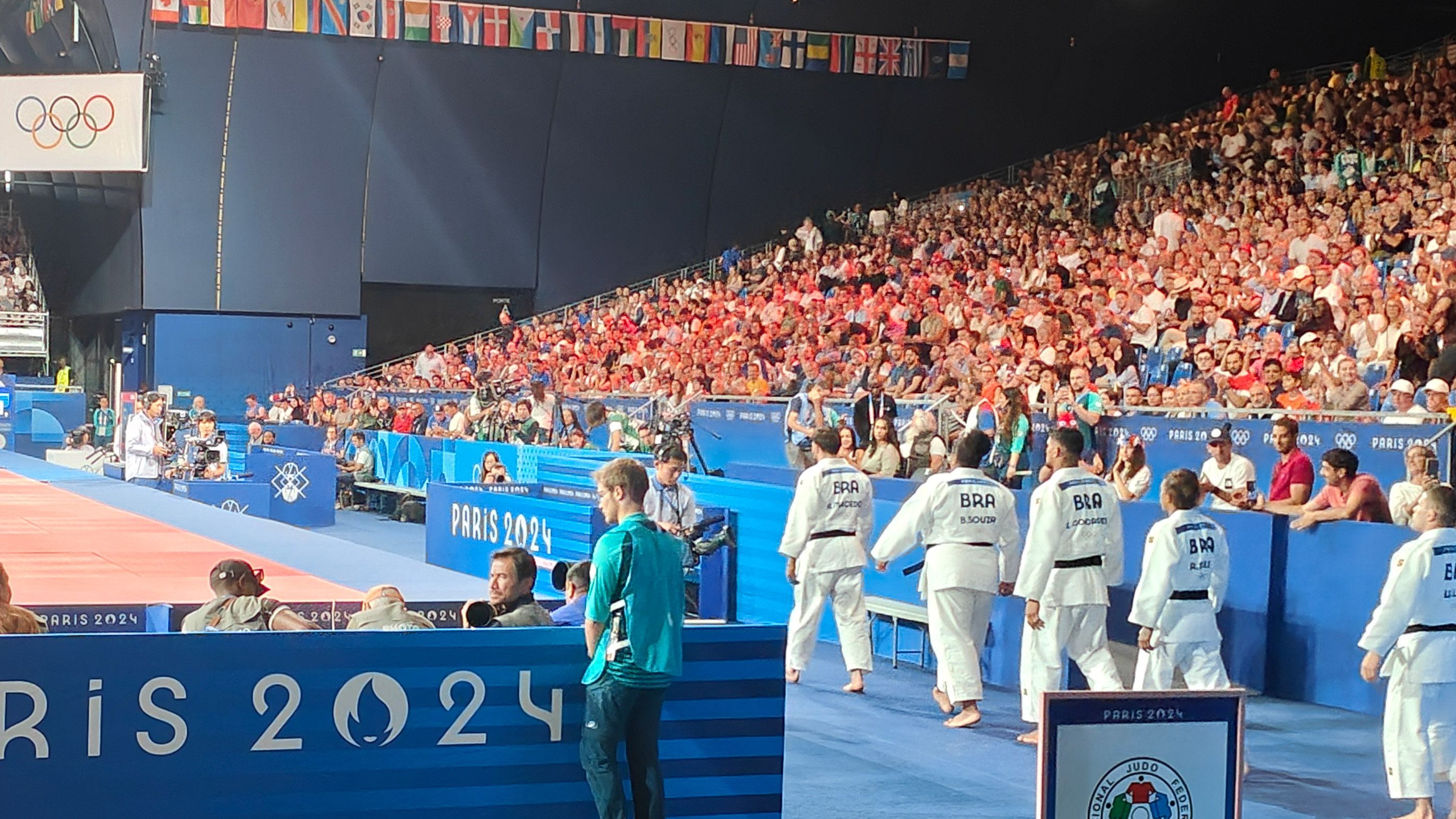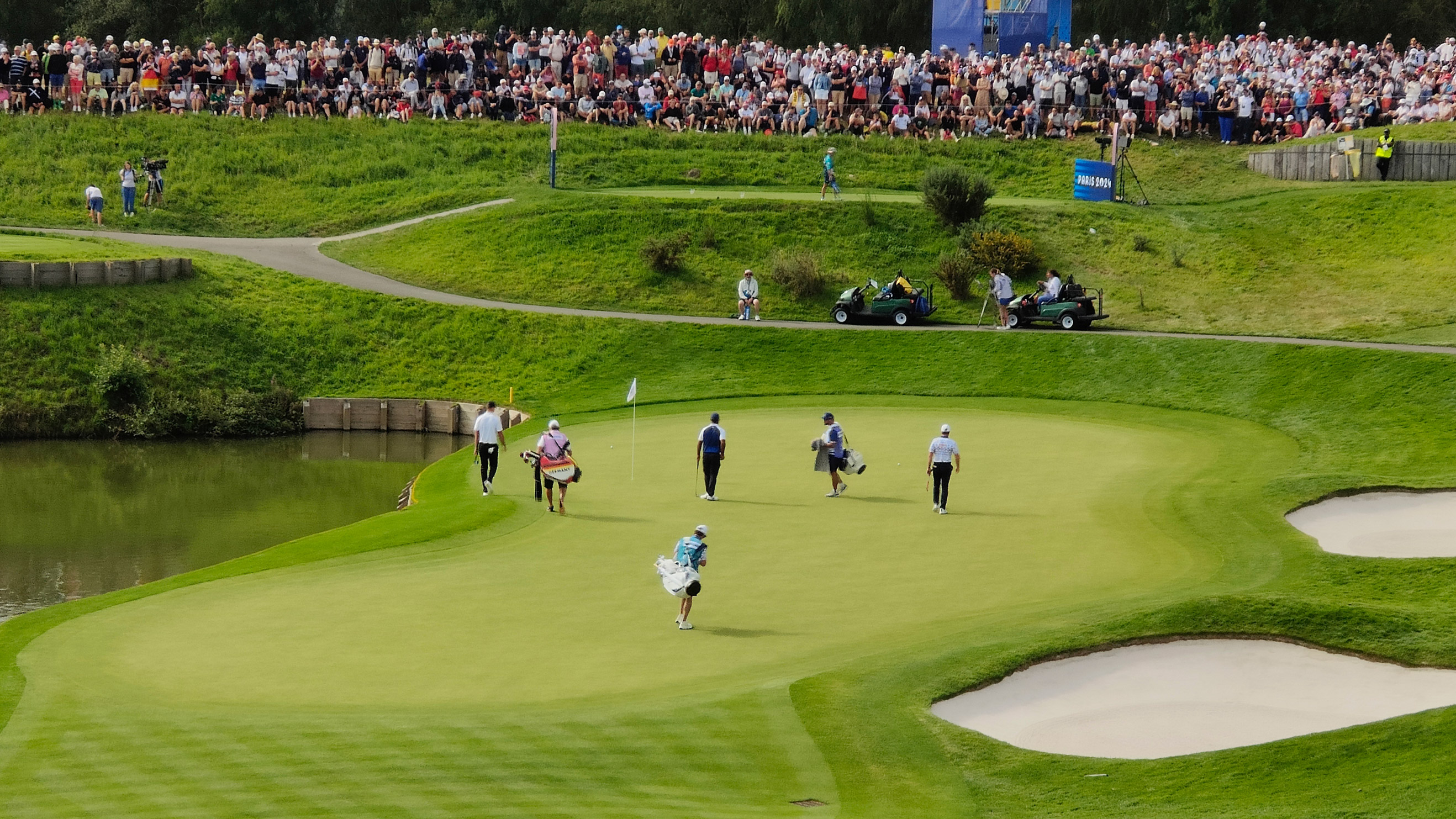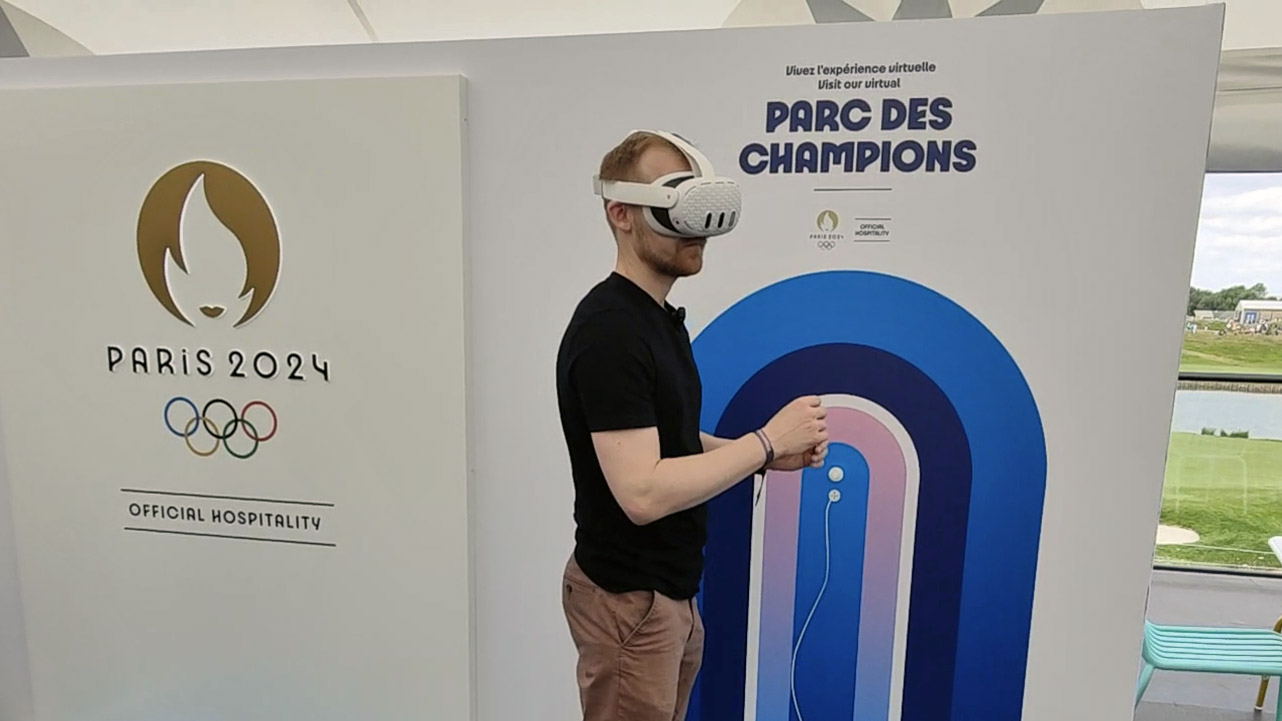I’m at the Olympic Games in Paris, and AI is everywhere
Artificial intelligence, real excellence

Sign up for breaking news, reviews, opinion, top tech deals, and more.
You are now subscribed
Your newsletter sign-up was successful
At the time of writing this, I'm in Paris. On Saturday, August 3, shortly before watching France’s Teddy Riner secure a second judo gold during the mixed teams event, I watched the Brazilian judo team take on Italy for the Bronze. In a first-point-wins final match to determine which team was going to take the medals home, Brazil’s Rafaela Silva hurled Veronica Toniolo to the ground in just 14 seconds with mathematical precision.
‘Mathematical’ is the operative word there. The Brazilian Olympic Commission is beginning to use a software program called iSports Judo, created by a team at the University of Sao Paulo, to use the statistics from athletes’ fitness tests to automatically generate high-quality performance information, which can be compared with that of other athletes at a glance.
The software was originally developed to be a ‘scout’ for future talents, according to Brazilian outlets, allowing hopefuls to input their information into the app to help coaches recognize exceptional athletes early on.

This Moneyball-esque look at athletic statistics, now updated with modern technology, reminded me of another app I came across this year. aiScout, the app from ai.io which uses Intel’s incredible AI-led 3D athlete tracking (or 3DAT), does the same scouting job for football. Intel’s 3DAT technology just requires video footage of an athlete performing a fitness test. Using this footage, an AI will automatically generate statistics, assigning numerical scores to stats like 'explosive power', 'coordination', and 'energy recoil', making it much easier for coaches compare the performance of different athletes.
I actually tried this revolutionary technology at the Intel booth during this year’s MWC conference, although the numbers I generated were hardly Olympic standard. Eventually, I believe it'll be in the hands of everyday exercisers interested in improving their performance in all manner of disciplines. The technology debuted in Tokyo during the last Olympics, and 3DAT is back again in Paris, and being used behind the scenes to monitor athletic performance.
Intel’s AI is truly out in force here. Before the games, TechRadar’s Editor-at-Large Lance Ulanoff spoke with Sarah Vickers, who leads Intel's Olympic and Paralympic Games Office, about innovations such as the Athlete365 app, which acts like a ChatGPT for Olympians. Athletes can ask questions about traveling to the venues, the latest doping regulation updates, and other necessary stuff without sifting through web pages or unrelated content to get the information they need.

I traveled to Paris with Adidas, and AI's influence is evident on the ground if you know where to look. The stadium I was watching the judo in was a temporary structure a stone’s throw away from the Eiffel Tower. It had been modeled using Intel’s Digital Twins AI technology, which creates advanced mock-ups of structures both permanent and temporary, allowing the athletes to see where they'll be competing – right down to how the sunlight will hit the stadium at the time of their events. Gamesmakers and organizers have also used this technology to fine-tune how spectators will filter into the venues.
Sign up for breaking news, reviews, opinion, top tech deals, and more.
The next morning, while watching the final round of the Olympic golf at the Golf National course an hour outside the city, I’d let my attention drift in conversation when a roar went up from hole one – I'd missed Scottie Scheffler’s birdie. Never mind; Intel will use 'AI-assisted clipping', which Fortune reports is based largely on crowd noise, to automatically crib that clip for sporting highlight reels.
Just outside the golf course in a closed-off area, guests could try on Meta Quest 3 VR headsets to virtually walk around the Parc des Champions, complete with cheering crowds. Although the best golf watches might not be used in competitions like these on account of their smart capabilities, there’s no denying that technology is infused thoughout the games for athletes and spectators alike.

This is what it looks like when AI is used to improve things in real, tangible ways. Apps and software will give more young athletes, some of whom might not ordinarily have had a fighting chance, the opportunity to attend the games and become Olympians themselves. Advanced athlete tracking can go beyond even the best fitness trackers’ capabilities, requiring just a bit of smartphone footage to work their magic. The events themselves can be better designed and better planned out, creating a better overall experience for us, the spectators.
I’m no stranger to AI doom and gloom, but, during an event that's a celebration of human excellence, I can’t help marveling at the upsides to artificial excellence that are also on display.
You might also like...

Matt is TechRadar's expert on all things fitness, wellness and wearable tech.
A former staffer at Men's Health, he holds a Master's Degree in journalism from Cardiff and has written for brands like Runner's World, Women's Health, Men's Fitness, LiveScience and Fit&Well on everything fitness tech, exercise, nutrition and mental wellbeing.
Matt's a keen runner, ex-kickboxer, not averse to the odd yoga flow, and insists everyone should stretch every morning. When he’s not training or writing about health and fitness, he can be found reading doorstop-thick fantasy books with lots of fictional maps in them.